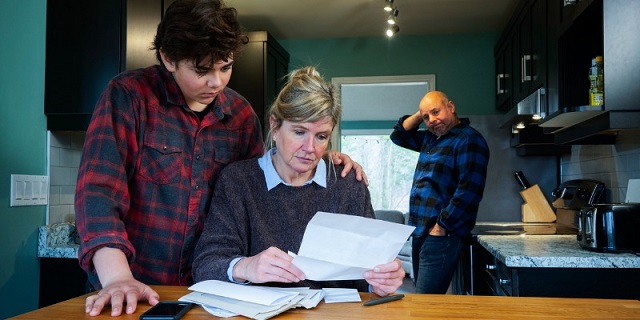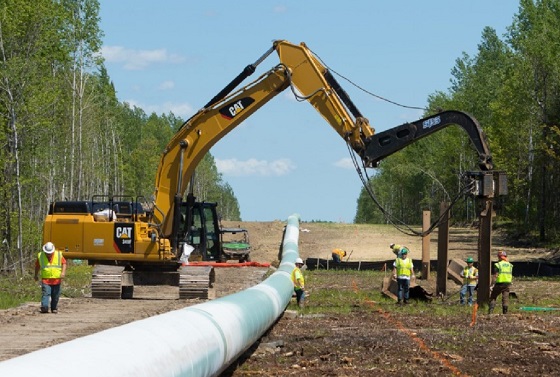Alberta
Albertans don’t have to choose between heating and eating. Here’s how you keep your home warm this winter

Alberta’s Winter Rules for utilities protect vulnerable Albertans by helping keep their lights on and homes warm during the cold winter months.
When temperatures drop, Alberta’s Winter Rules for utilities are designed to keep the power and heat on for Albertans during the cold winter months. Ensuring Albertans have access to reliable and affordable energy is a top priority for Alberta’s government.
From Oct. 15 to April 15, electricity and natural gas services in Alberta cannot be fully disconnected by retailers. This also applies to any time during the year when the forecast for the next 24 hours indicates temperatures below zero degrees.
“During Alberta’s harsh winters, no one should be forced to choose between heating and eating. We’re keeping the lights on for the most vulnerable and taking action to lower power bills for all Albertans. I encourage anyone having difficulties with their utility bill to contact the Utilities Consumer Advocate and learn what options are available.”
Under the Winter Utilities Reconnection program, customers with disconnected utilities are contacted to help get them reconnected before the cold weather hits. This is led by the Utilities Consumer Advocate (UCA), in partnership with the Alberta Utilities Commission (AUC), utility retailers and distributors and other government agencies. Albertans who are having difficulty with paying their utility bills, communicating with their retailer or making manageable payment arrangements should contact the UCA.
“The Winter Utilities Reconnection Program is an important protection for customers struggling with utility bills. UCA Mediation Staff are available to help customers get energy utilities reconnected and stay safe during winter. They can be reached at 310-4822.”
Alberta’s government is working tirelessly to lower utility bills and protect ratepayers, ensuring Albertans keep more of their hard-earned dollars in their bank accounts. With more still to come, Alberta’s government has already taken action by stabilizing local access fees through new legislation, introducing regulations to prevent power price spikes and investing in programs to help municipalities and rural Albertans manage and lower their energy costs. Additionally, the UCA continues to help consumers better understand and navigate the utility market, and their advocacy has led to Albertans saving more than $3.2 billion over the past two decades.
Affordable electricity options are available
Alberta has a unique competitive electricity market, which gives Albertans the power to choose the best energy provider, plan and payment option to fit their needs. Consumers can purchase their power from more than 50 competitive retailers, with the choice of either fixed or variable rate contracts.
Albertans are encouraged to explore their options and find the competitive rate best-suited to their needs. Last year, tens of thousands of households moved off the Rate of Last Resort to competitive contracts for a more affordable option. Albertans who are looking for help with their utility bills or are experiencing a dispute with their provider should contact the Utilities Consumer Advocate at 310-4822, via email, or through their website.
Related information
- Utilities Consumer Advocate
- Financial Assistance Resources (UCA)
- Alberta Utilities Commission
- Farm fuel and rural utility programs
Related news
- Introducing the Rate of Last Resort (Sept. 25, 2024)
- Helping Alberta communities lower energy costs (Sept. 24, 2024)
- Helping Calgarians save millions on their power bills (Sept. 19, 2024)
- Power rates slashed in half by new market rules (Sept. 5, 2024)
- Power watchdog supports Alberta’s electricity market reforms (Aug. 5, 2024)
- Preventing power price spikes (June 26, 2024)
- Making utility bills more affordable (April 22, 2024)
- Making electricity more affordable (April 18, 2024)
Alberta
READ IT HERE – Canada-Alberta Memorandum of Understanding – From the Prime Minister’s Office

From Energy Now
Prime Minister of Canada
Alberta
Falling resource revenue fuels Alberta government’s red ink

From the Fraser Institute
By Tegan Hill
According to this week’s fiscal update, amid falling oil prices, the Alberta government will run a projected $6.4 billion budget deficit in 2025/26—higher than the $5.2 billion deficit projected earlier this year and a massive swing from the $8.3 billion surplus recorded in 2024/25.
Overall, that’s a $14.8 billion deterioration in Alberta’s budgetary balance year over year. Resource revenue, including oil and gas royalties, comprises 44.5 per cent of that decline, falling by a projected $6.6 billion.
Albertans shouldn’t be surprised—the good times never last forever. It’s all part of the boom-and-bust cycle where the Alberta government enjoys budget surpluses when resource revenue is high, but inevitably falls back into deficits when resource revenue declines. Indeed, if resource revenue was at the same level as last year, Alberta’s budget would be balanced.
Instead, the Alberta government will return to a period of debt accumulation with projected net debt (total debt minus financial assets) reaching $42.0 billion this fiscal year. That comes with real costs for Albertans in the form of high debt interest payments ($3.0 billion) and potentially higher taxes in the future. That’s why Albertans need a new path forward. The key? Saving during good times to prepare for the bad.
The Smith government has made some strides in this direction by saving a share of budget surpluses, recorded over the last few years, in the Heritage Fund (Alberta’s long-term savings fund). But long-term savings is different than a designated rainy-day account to deal with short-term volatility.
Here’s how it’d work. The provincial government should determine a stable amount of resource revenue to be included in the budget annually. Any resource revenue above that amount would be automatically deposited in the rainy-day account to be withdrawn to support the budget (i.e. maintain that stable amount) in years when resource revenue falls below that set amount.
It wouldn’t be Alberta’s first rainy-day account. Back in 2003, the province established the Alberta Sustainability Fund (ASF), which was intended to operate this way. Unfortunately, it was based in statutory law, which meant the Alberta government could unilaterally change the rules governing the fund. Consequently, by 2007 nearly all resource revenue was used for annual spending. The rainy-day account was eventually drained and eliminated entirely in 2013. This time, the government should make the fund’s rules constitutional, which would make them much more difficult to change or ignore in the future.
According to this week’s fiscal update, the Alberta government’s resource revenue rollercoaster has turned from boom to bust. A rainy-day account would improve predictability and stability in the future by mitigating the impact of volatile resource revenue on the budget.
-

 Alberta4 hours ago
Alberta4 hours agoFrom Underdog to Top Broodmare
-

 Energy1 day ago
Energy1 day agoPoilievre says West Coast Pipeline MOU is no guarantee
-

 Energy1 day ago
Energy1 day agoWill the New West Coast Pipeline MoU Lead to Results? Almost Certainly Not According to AI
-

 Alberta1 day ago
Alberta1 day agoWest Coast Pipeline MOU: A good first step, but project dead on arrival without Eby’s assent
-

 Carbon Tax1 day ago
Carbon Tax1 day agoCanadian energy policies undermine a century of North American integration
-

 Alberta1 day ago
Alberta1 day agoCarney forces Alberta to pay a steep price for the West Coast Pipeline MOU
-

 Alberta1 day ago
Alberta1 day agoAlberta and Ottawa ink landmark energy agreement
-

 Energy16 hours ago
Energy16 hours agoOttawa and Alberta’s “MOU” a step in the right direction—but energy sector still faces high costs and weakened competitiveness



